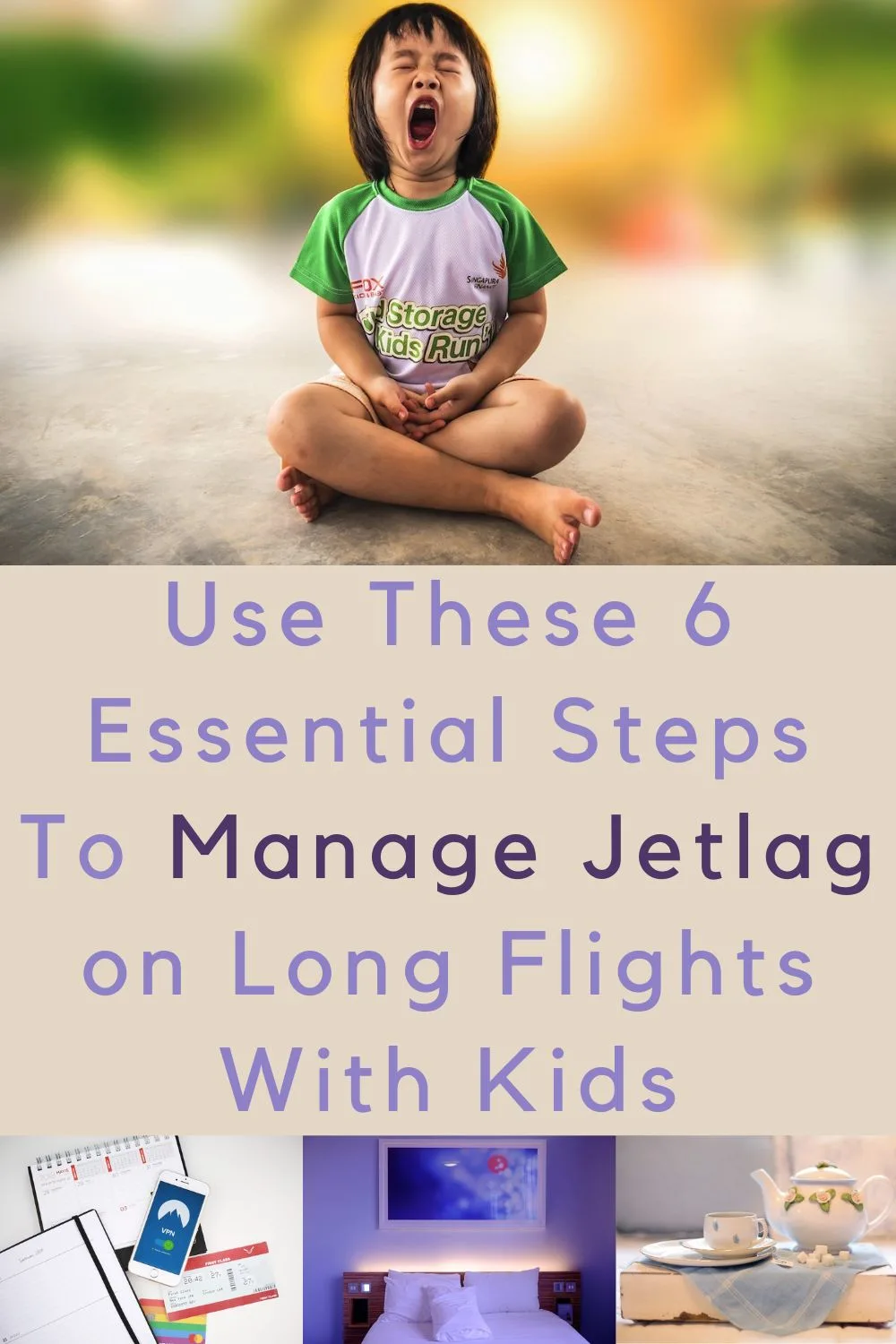Jet lag and adjusting to time differences is one of the biggest challenges to long-distance travel. It can be especially hard with young kids who don’t yet understand time zones and just want to sleep when they’re tired. On the first few days of an overseas or cross-country trip they might become overtired and extremely cranky. Or they might fall asleep completely mid-afternoon only to wake up at midnight, raring to go.
But there are ways to mitigate the effects of jet lag and adjust more quickly. Here are six things to know about jet lag to help families plan long-distance trips and adjust to a new time zone in time to make the most of your vacation.
You might also want to read these:
• Yes, You Can Fly Long-Haul With a Baby
• 7 Tips for Flying With Toddlers That I Learned By Doing It
•5 Steps To Getting Paid if Your Flight Is Canceled or Delayed
Answers To 6 Top Questions About Family Travel & Jet lag
Q1. What exactly is jet lag?
A: Jet lag occurs when you travel across time zones and your body’s internal clock— its circadian rhythm—is disrupted.
It doesn’t just make you tired. Other symptoms of jet lag can include irritability, fatigue and insomnia, loss of appetite and digestive issues. Don’t be surprised if after a long plane ride your kids don’t eat much for a day or two. They might have some nausea, or be a little hyper, too.
After overnight flights to Europe that we took when Teen Traveler was in preschool or elementary school, trying to keep her from sleeping too much on the day we landed was difficult. It made us feel guilty, too, because she looked soooo tired.
It would take two or three days to get her energy and appetite back, which meant the jet lag wasn’t really worth it if the trip was less than ten days.

On trips to Western half of the U.S. the jet lag was worse on the way home. This makes it easier to manage but it was always better if we had a day or two before she had to go back to school and other activities.
By middle school the first day was a bit of struggle but she’d be back to normal by the second morning. We managed a busy five-day weekend in Edinburgh at about age 9, though we spent much of the first day on a city tour bus, where she napped on and off.
In high school she could even push through and keep herself awake until early evening on that first day and her appetite was affected less.
Q2. What can you do before you leave?
A: When I had a young child, I always tried to time our flights to when she was most likely to fall asleep for all or part of the trip. And I often let her fly in her pajamas to encourage it.
On very long-haul flights I’d try to book a flight where we’d arrive in the evening. Having a simple dinner and going straight to bed is the easiest way possible to adjust to the local time.

When it gets closer to your trip, adjusting your kids’ sleep schedule gradually before you leave can help them adjust more easily when you arrive. Perhaps adjust yours as well if you can manage it.
Start by moving their bedtime and wake-up time by 30 minutes each day for about a week before you’re scheduled to leave. Set the clock earlier if you’re flying east and later if you’re going west.
This gradual change will help reset their internal clock to get you ready for the new time zone. Three hours is about the limit for this. But even if your time-change will be bigger than this it will still help them to adjust more easily and quickly.
It’s also important to get enough sleep before your trip. Not being well rested will almost certainly make jet lag worse for everyone.
Q3. What kind of drinks help jet lag?
A: Staying hydrated while flying and during that first day will help a lot. Be sure to give your kids plenty of water, juice, milk or whatever their preferred drink might be, especially if they aren’t eating as much.
For the adults, caffeine and alcohol can dehydrate you and make jet lag worse. They can prevent you from staying awake or falling asleep when you need to, making it harder to shift circadian rhythms.

Drinking a lot of water is the best thing but for variety you can also drink herbal tea, natural fruit juices or lightly fizzy drinks like flavored seltzer. If you need a bit of a lift, peppermint tea can perk you up without a caffeine kick. Beware of soda, which can have caffeine, way too much sugar or heavy carbonation that can make you feel bloated, which also disrupts sleep.
Q4. What can I do during the flight to fight Jetl ag?
A: Sleep! Kids generally feel less cramped than adults in those tiny economy seats. There’s a good chance they’ll sleep for at least part of the flight. You might have a harder time sleeping (especially if you have a kid sleeping on your lap). But if you can even just doze or rest with your eye closed for part of the flight it can help.
Sitting for long periods during a flight can inhibit your blood circulation, which can make you feel cramped and stiff. When you aren’t sleeping (and don’t have a sleeping kid in your lap) keep active.
Walk around the cabin periodically and definitely let kids get up and walk around with you.
Also, stretch your limbs, flex and rotate your hands and feet, wiggle your fingers, twist at the waist and roll your head as much as you can without disrupting people around you. These exercises may not seem like much, but they can make a big difference in keeping you feeling fresh and energized during your flight.
Try playing a game like Simon Says to get your little kids moving a bit, too. When they’re small they can actually stand in front of their seat to do it.
Q5. Is It Okay To Use Natural Remedies?
A: It’s always a good idea to check with a doctor before taking anything internally or giving anything to your kids. And you might want to try any new remedies at home to see how affect you (well, way too much, not at all?) before using it in transit.
Lavender oil is known for its calming and relaxing effects and can be especially effective with small children. Chamomile tea also has natural properties that can help you relax. With kids, warm milk often helps, with a little honey if that’s possible.

I’ve found that taking a small dose of melatonin for the first few nights after I arrive can help me reset. Rich and Teen Traveler take it, too. But definitely ask a doctor about the appropriate doses for adults and kids and to make sure it won’t interact badly with anything else members of your family might be taking.
Q6. Is it Okay To Take It Easy For A Few Days?
If anyone in your family has pre-existing medical conditions you definitely want to find out how flying and jet lag can exacerbate them and how natural remedies might help or hurt. This will probably be most important on multi-generation vacations.
A: Yes! If your vacation time allows, definitely give your family a chance to relax and take it easy. Don’t pack too many activities into your schedule in the first few days. Let the kids sleep in if they want to, take a nap even if you normally don’t. And even on a city vacation, consider more time at the hotel pool than you’d normally consider.
But don’t hide. Exposing your kids and yourself to natural daylight will go a long way toward resetting your body’s internal clock and improve your sleep patterns.
With proper planning and care your family vacation can be enjoyable, restful and full of adventure, even if not quite from the moment you land.
Pin it for later!


